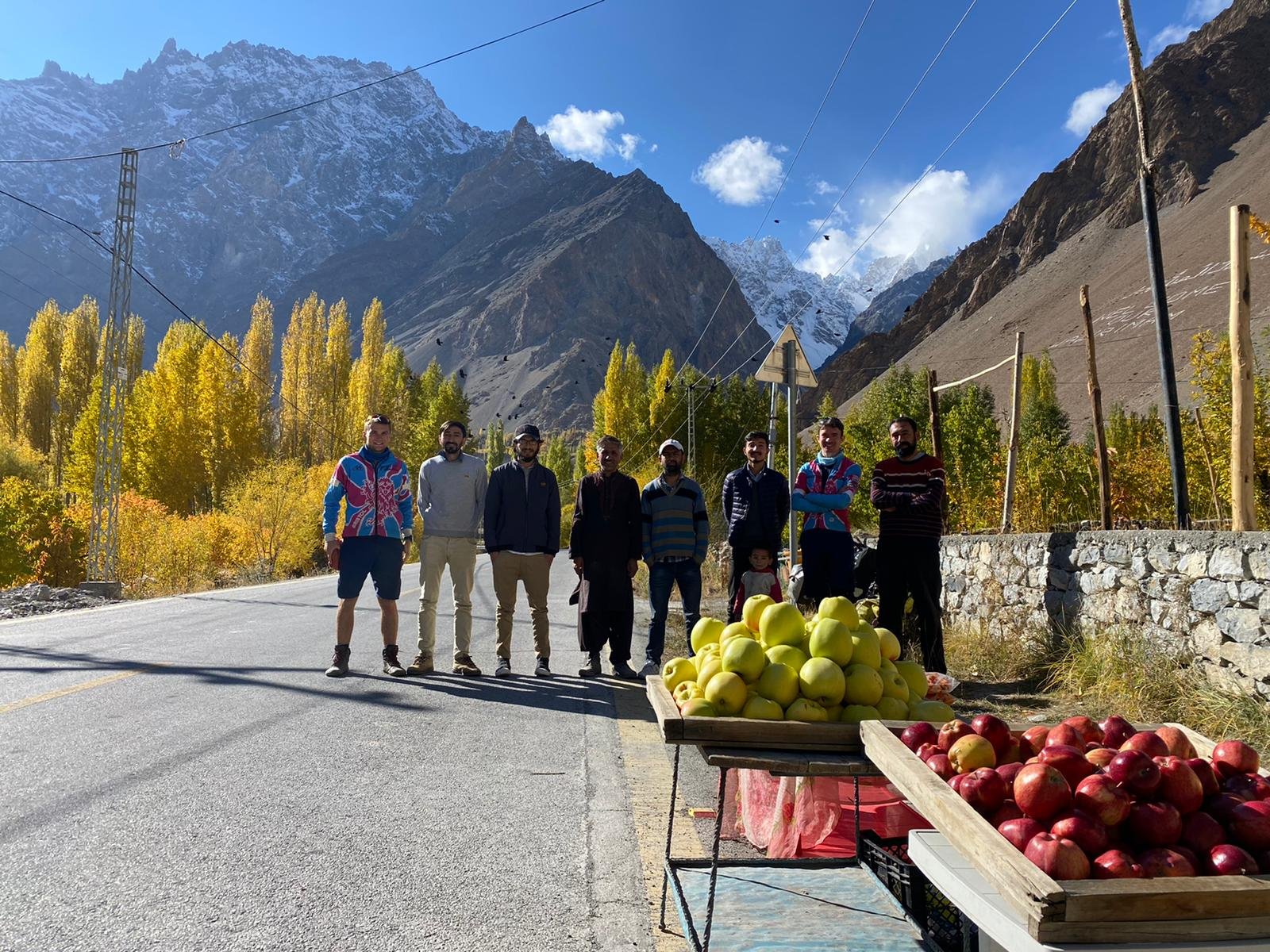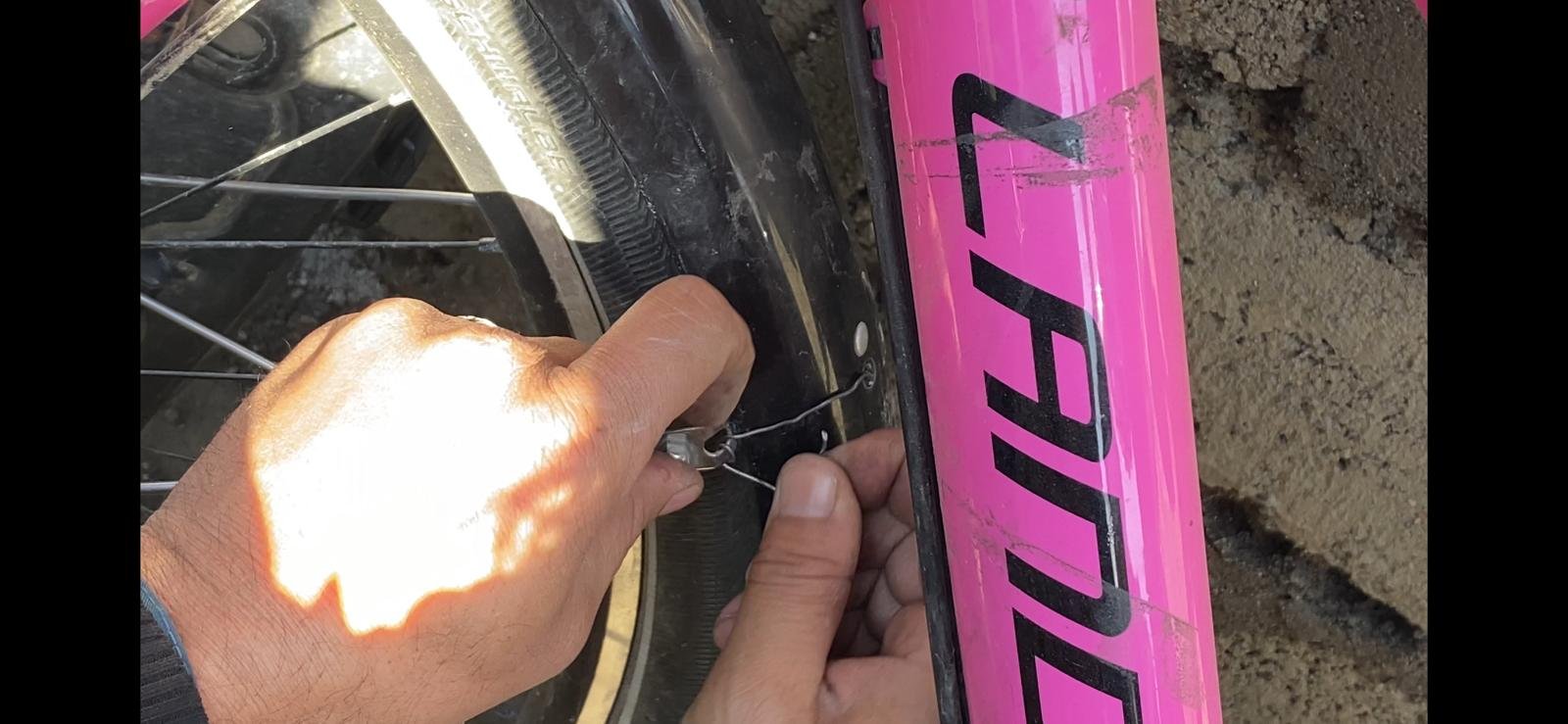Riding the Karakoram Highway: Khunjerab to Islamabad – Part 1
The last two weeks of cycling have been some of the toughest of the expedition so far, and it was with a sense of relief that I leant Chris against the wall of the hotel in Islamabad. TJ and I had got here in one piece, but with a myriad of stories to tell: of kindness, struggles and frustration.
TJ and I have cycled 880 kilometres (550 miles) southwards through Pakistan. We started in -10˚C at the top of the Khunjerab Pass, bordering China. There was snow on the road, and it was so cold that the all the contents in the toilet bowl were solid. The wind numbed my fingers despite my ski mittens and TJ every last piece of clothing he had. Over the next few days we followed the Hunza and Indus rivers down through the epic mountains of Pakistan. These were supreme jagged peaks which glowed in the morning and evening light, and yet, in shadow were lost like chameleons in the pale blue-grey sky. It was a place of unique environments; in one valley we ate the most crisp and fragrant apples in the Ismaili village of Khyber, where the trees and sun were golden, but less than 1 kilometre beyond that pocket of land, there were only barren shaded scree slopes.
TJ (second from right) and myself in the village of Khyber
We all know water runs downhill, a fact that has been exploited for millennia: from the irrigation experts of ancient Silk Road cities such as Khiva to the qanats of Oman. But there is an exception: Pakistan. Despite following the river’s course, we climbed an extraordinary 9,100 metres on our journey down to Islamabad. This is comfortably more than K2’s 8,611 metres, which we passed in an adjacent valley. This climbing was more than any other country – even Kyrgyzstan – and we didn’t even summit a single pass!
The road, whilst hewing to the river’s wiggling, constantly weaved either upwards or downwards. There was rarely a break. When the road wound downhill I was constantly on the brakes, cautiously taking each most corners, before all too soon we would be climbing again. TJ was a trooper on the back, providing consistent power throughout, though every time I changed gear he would put in a burst out the saddle and we would surge ahead as I struggled to keep the handlebars straight. We ended each day exhausted from the riding, and chowed on daal (lentils), channa (chickpeas), sabzi (vegetables). All were deliciously yellow, but rare was the day our diet strayed from this trinity.
The quality of the road we were cycling along
It wasn’t only the gradients of the roads that were challenging in Pakistan. It was also the roads themselves. Between Chilas and Dasu, a stretch of 120 kilometres, the road disintegrated to dirt, dust and gravel. Several hydropower dams are being built on the Indus river, with Chinese help, and the roads are falling apart from the weight of the trucks continually plying its length. We saw several explosions burst from the rock as it was broken up for building materials and in places rocks were strewn over the road.
We hit the first stretch of dirt road at some speed and had only gone two hundred metres before disaster struck. The bumpy surface caused the bike to shake like a pneumatic drill and dislodged one of the front panniers. Half hanging on, the pannier got trapped between the tire and mudguard, and got yanked with the turning of the wheel. This ripped out the mudguard supports and we were left with a broken mess. It was frustrating that we had run into problems so early on one of our toughest days, and now the pannier hung loosely off the rail, threatening to bounce off again. The mudguard flapped around and rubbed against the tire; a rough whir came from the wheel. It was going to be a long day.
We stopped at the next chai shop to look at the damage. Perhaps we would be able to repair it with some of the parts I had? It turned out that although I had plenty of bolts, I had no nuts and we were stuck. A small crowd had gathered around us by this point and TJ did an excellent job of explaining, multiple times, where we were from, where we were going, and yes, we were both riding that bike.
Fixing the mudguard
One man saw my difficulties and caught my eye and said “binding”. With that, he disappeared, but was back a minute later with a length of thin wire. With deft hands, he threaded it through the mudguard support and the mudguard and secured it with an ingenious loop and twist. The mudguard held secure, and was as good as new. He had made it seem so simple. The man smiled and waved us off as we carried on, shouting “Shukria! Khodahafez!” (Thanks! Goodbye!) It was one of many instances of kindness and resourcefulness that we experienced, that kept us on the road all the way to Islamabad. The challenge of the terrain was perfectly matched by the warmth of the people we met.



